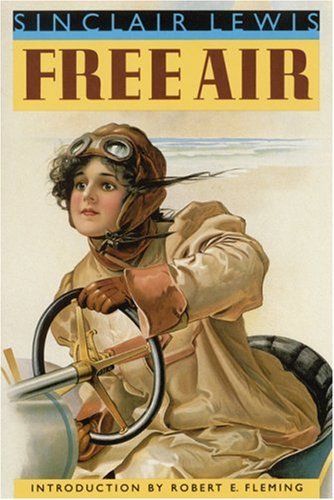
Free Air
Fame was just around the corner when Sinclair Lewis published Free Air in 1919, a year before Main Street. The latter novel zeroed in on the town of Gopher Prairie; the former stopped there briefly and then took the reader by automobile in search of America. Free Air heads toward a West that was brimming with possibilities for suddenly mobile Americans at the end of a world war. The vehicle in Lewis’s novel, not a Model T but a Gomez-Dep roadster, takes Claire Boltwood and her father from Minnesota to Seattle, exposing them all to the perils of early motoring. On the road, the upper-crust Boltwoods are at once more insignificant and more noble. The greatest distance to be overcome is the social one between Claire and a young mechanic named Milt, who, with a cat as his traveling companion, follows close behind. If Free Air anticipates many of the themes of Lewis’s later novels, it also looks forward to a genre that includes John Steinbeck’s Travels with Charley and Josh Greenfeld and Paul Mazursky’s Harry and Tonto. And the character of Claire, blazing her own trail across the West, looks back to the nineteenth-century pioneer woman and ahead to the independent-minded movie heroines played by Katherine Hepburn. In his introduction Robert E. Fleming discusses the place of this early novel in Lewis’s canon.
Reviews
Anne Driscoll @settlerofcatanne